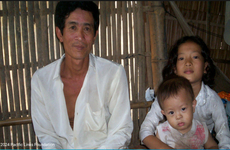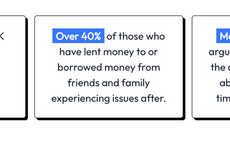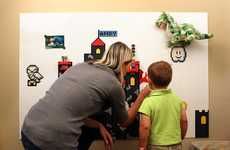
Friends of the Children Combats the Cycle of Generational Poverty
Katherine Pendrill — July 14, 2016 — Life-Stages
References: friendsofthechildren.org & good.is
'Friends of the Children' is a non-profit organization that is working to break the cycle of generational poverty. Across the US, many children are born into poverty with few opportunities for upward mobility. This organization works with children on a long-term basis in order to help break the poverty cycle.
Friends of the Children operates under the assumption that long-term mentorship is the key to breaking the generational poverty cycle. To achieve this goal, the organization works with children for a period of 12.5 years to mentor those who are most in need. The children identified as most at risk are those in foster care, those who have a parent who is incarcerated or those who currently live in extreme poverty. After identify those at risk of repeating the poverty cycle, the mentors work to help the child graduate and avoid issues such as teen pregnancy or time in the juvenile justice system.
By looking for a long-term solution rather than a quick fix, Friends of the Children demonstrates a different way of helping children living in poverty.
Friends of the Children operates under the assumption that long-term mentorship is the key to breaking the generational poverty cycle. To achieve this goal, the organization works with children for a period of 12.5 years to mentor those who are most in need. The children identified as most at risk are those in foster care, those who have a parent who is incarcerated or those who currently live in extreme poverty. After identify those at risk of repeating the poverty cycle, the mentors work to help the child graduate and avoid issues such as teen pregnancy or time in the juvenile justice system.
By looking for a long-term solution rather than a quick fix, Friends of the Children demonstrates a different way of helping children living in poverty.
Trend Themes
1. Long-term Mentorship Programs - Non-profits can create long-term mentorship programs for children living in poverty to break the generational poverty cycle.
2. Identifying At-risk Children - Non-profits can focus on identifying children at the highest risk of poverty and aim to prevent them from enduring the same cycle.
3. Preventing Issues - Non-profits can prioritize preventing issues such as teen pregnancy and time in the juvenile justice system to help break the poverty cycle.
Industry Implications
1. Non-profit Organizations - Non-profit organizations can implement strategies that focus on long-term mentorship and prevent issues to break the poverty cycle.
2. Education Industry - Educators can help break the cycle of poverty by working with students who are at the most risk, such as those in foster care, and providing them with long-term mentorship.
3. Social Work Industry - Social workers can play an important role in identifying at-risk children and providing them with the support they need to break the generational poverty cycle.
0.7
Score
Popularity
Activity
Freshness























